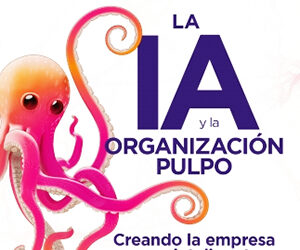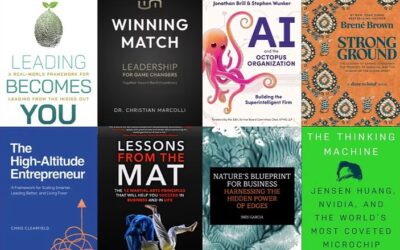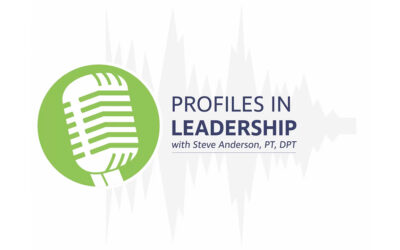An excerpt from the Jonathan Brill interview “Thriving in Chaos: Unlocking the Secrets of Strategic Luck in a Disruptive World” by Ryszard Kołodziej of Strefa PMI:
We’re clearly moving into a world that is more disruptive and where there’s more randomness in our businesses and our lives. And that means that we need to think differently about how we interact. With the world moving forward, instead of focusing first on optimization and efficiency, we need to focus first on resilience and flexibility because when you do that, you create dramatically better outcomes over time.
There are three basic things that you can do to increase your resilience and flexibility. The first and most important thing is to become aware of the range of things that are possible. If you believe that the range of things that are possible are only those that you’ve experienced in your lifetime, then we’re in for a big Surprise!
Most of us hadn’t experienced a pandemic, and for most businesses, it was a shock. Most of us hadn’t experienced Russian aggression in Europe during our lifetimes, and it was a shock. But these are things that are historically known. These are historically consistent disruptions. Like inflation, energy shocks, changes in monetary regimes, geopolitical tensions.
These are all things that we knew and that we know happen on a relatively regular timeline. And so, when we look at the future, we need to first focus on Awareness. What are those things that we know can happen that we might not have experienced yet? And what happens when they collide?
No one really expected World War I. It was the result of multiple overlapping issues colliding all at the same time. Tensions in Central Europe, lack of understanding about how decisions were made in the Russian military by the nobility, lack of understanding about the timelines that the French and the Germans had to make decisions because of changes in rail technology. This thing that should have been an unfortunate assassination of the Archduke resulted in this massive world war. All of these things were knowable. None of them individually would have caused it. It was the collision of all of them.
If we want to become aware of the change that we face, we need to be aware not just of the individual headlines in the newspaper, we need to ask what happens when that ink collides creating something massive and unmanageable. We get more connected, the World moves faster, and things become more complex, for that reason we’re going to see more and more of these collisions.
The second thing is Behavior. When we think about the idea that the world is getting more disruptive, we need to evolve the way that we look at the World around us, to evolve the way that we interact with it.
We need to ask what are those behaviors in our businesses and in our lives that help us to increase our resilience and to increase our adaptivity as well as ability to innovate. And there are a range of things we can do, but they all come down to increasing the executive decision making at lower levels in our firms, increasing our ability to think holistically about risk management, not just the: “what’s the risk on my project”, but how does that impact on the rest of the firm and how does risk and the rest of the firm impact my project.
So it’s bringing people lower in the organization, a level of executive decision making and executive awareness that we traditionally haven’t done. As we see AI in the next level of digital transformation, what we’re going to discover is that people much lower in the firm have to make much more complex decisions. So this isn’t an option anymore. This is how we need to operate. Increasingly in the next three to five years.
The last piece is about Culture – how do you create a culture that focuses on resilience, adaptability, innovation, and the World of increasingly constant change and increasingly constant disruption.
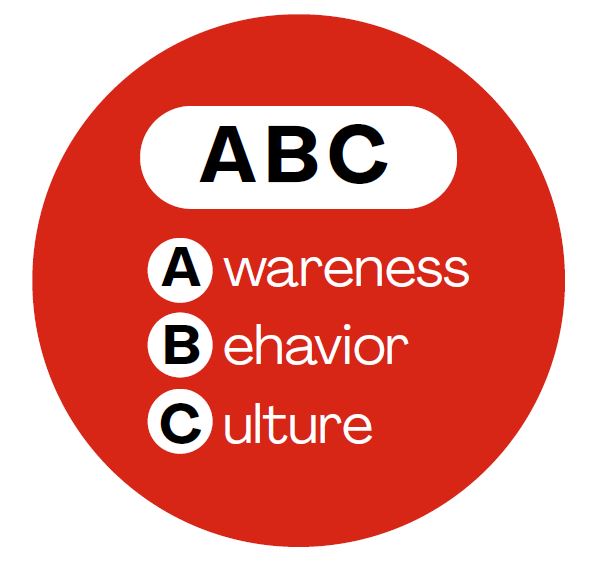
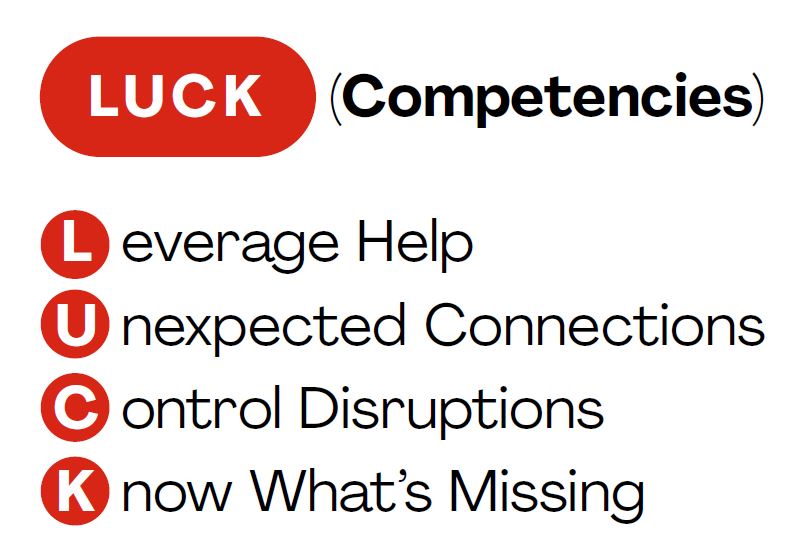
It comes down to something that I call strategic LUCK. This idea that we can focus on doing our things and trying to be successful alone by working harder, or we can work in knowing the objective clearly, or we can work together to feel our way through an increasingly ambiguous future.
And there are four things that you can do if you believe that moving into this ambiguous future is our reality and that we need to focus on that is the priority in terms of how we operate and how we build our teams, as opposed to the exception.
One, creating a culture where instead of avoiding help and avoiding discussing weakness, we create a culture where we leverage help and we create psychological safety. The second piece that I think is dramatically different than most of us have seen in large firms for the last 40 years, the entire concept of scientific management is built around this idea that we decrease uncertainty.
In a world of change, actually, what you want to do is increase randomness. You want to increase the random things that happen in your life. You want to increase the random things that you access in your business. We used to ask people to sit at their desk and work harder. And that’s how we were going to be more productive.
Often the answer is to ask people to leave their desk, leave the office, take more time off, go see more of the world. And what we’re seeing is that often increases productivity. What we’ve seen in many companies over COVID is that shifting to a four day work week created no decrease in productivity and in many cases caused an increase in innovation.
What happens if instead of just focusing on our KPIs based on how many hours we work, how much work we get done, we start asking how much innovation and how much new value do we add? It’s a different way of looking at the world. So we talked about Leveraging help and Unexpected connections.
The next piece is about Controlling disruption. If you go and you ask for a lot of help, and as you increase randomness dramatically in your life, new things become possible. You dramatically increase your potential, but the challenge with this approach is that you also increase the probability of disruption. But we can deal with that. And we’re really good at it. That’s what scientific management is for. What’s interesting is that we increase the amount of the good kind of disruption, the kinds where you get product market fit before you expected, but where the large customers appear that you don’t know how to service yet.
Those are the kinds of disruptions that are truly dangerous for business because we don’t have the processes in place to take advantage of it. And so we need to think differently about how we control that kind of disruption because we can’t just avoid it. Those types of moments we call in the US hockey stick moments, because of the size of the market or the size of the value of what you do increases exponentially. Those are going to increase and those are going to be the way we create growth in the future. When you leverage help and unexpected connections, and you control disruption, the next piece is instead of focusing on what’s in front of you, paying attention to Knowing what’s missing.
In businesses, we’re so trained as project managers to focus on the next thing. It’s kind of the idea of sequential management. The problem is in a world where you don’t know what’s next, and you don’t know why it’s happening, that doesn’t work very well. When you leverage help and unexpected connections, you become confident that you can work with the disruption, that you can control the disruption instead of avoiding it.
You start to have more and more models of what’s possible for you, what’s possible for the future, what might be happening then to those around you, and then to your competition. And so you naturally start to focus on not what’s in front of you, but what’s missing. Where are those places that no one else is playing, where you can create value at.
Where are those small things that might cause an insight about what’s actually going on and how to create leverage that no one else is focusing on because they’re just working harder and harder trying to move forward without looking around. That I believe is how you create strategic LUCK.

